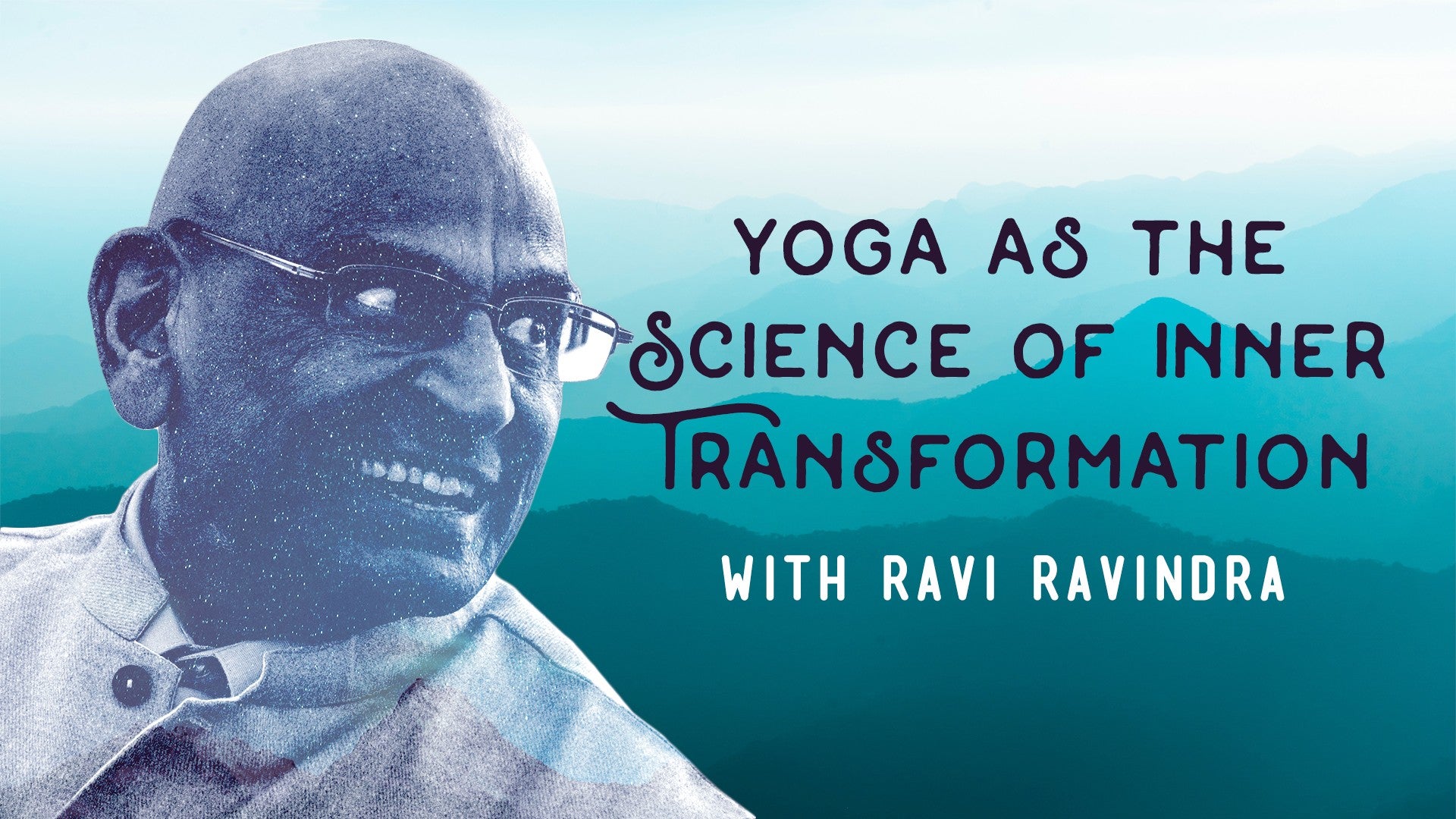Description
About This Video
Transcript
Read Full Transcript
Actually, it's rather interesting. Arjuna in the Bhagavad Gita asks Krishna, how does a person of steady wisdom sit? How does he stand? How does he walk? Some usual, when we speak about a spiritual transformation, it actually has a physical vibration which is different from our other people. Each one of us, including you and I, absolutely everybody on the street, is constantly exuding vibrations. I have sometimes noticed, especially when I used to teach in a class, there may be 30 or 35 students there, and if somebody came very agitated or feeling very violent in the class, as if the whole atmosphere changes. Now, of course, increasingly one becomes more and more sensitive to it as well. So, we are constantly exuding vibrations, and my impression is that those who are a little bit more integrated internally, this is one of the important features of transformation, by the way. Namely, that my mind and my body and my emotions are not in opposite directions.
Mind says something, the body says, I'm too lazy today, we'll do it tomorrow. You see? The mind understands many things. Which is why we have this remark, for example, Saint Paul saying, I do what I do not wish to do, and I do not do what I wish to do. So, when one begins to recognize this internal contradiction within myself, that already is actually a call for transformation, so that I will be internally integrated. That my mind, body, feelings are in the same general direction. So, how do we recognize somebody who is transformed? All of these things are, of course, just the way they talk, the way they sit, the way they relate with other people.
I tell you an incident, this might actually be relevant. Many, many years ago, actually, to give you the exact date, it was 1966 in India. I was in Varanasi at the Rajghar school, this is a Krishnamurti school, at a place called Rajghar. Krishnamurti was supposed to come next day, and the cook was very, very excited about it. So, I said to the cook, look, why are you so excited? After all, Krishnamurti speaks only in English, and you don't know a single word of English. And you won't understand anything he's saying. And he looked at me, the cook, really, I think, quite rightly, almost chided me. He says, what is language has got to do with it? Just look the way he sits.
So, I actually mentioned this, I really felt he was quite right, that saying, what is language got to do is just look the way he sits. So, I think this question of Arjuna has merit to it. How does a person of study wisdom sit? How does he talk? How does he stand? Or how does he walk? Not that, you see, this is where the difficulty also comes. Am I sensitive enough to be able to see somebody walking differently from the other? This is why I'm saying to you that even if I may not be quite sensitive in that absolutely physical way, but many of us in the presence of some people feel a different internal attitude.
I was always very struck that a kind of inner quietness began to descend in the presence of somebody like Krishnamurti or Madam Rasaasman. Not that they were doing anything or saying anything or that I was doing anything, but they create a different vibration so the atmosphere around them changes. But do we have then specific measure of this? This is where people sometimes get a little too occupied with, can they do something miraculous? All the sages, for example, Patanjali, Yoga Sutras or the Bhagavad Gita, they all agree that people who are at a higher level have slightly different laws. So, they are a little free of some of the laws, but we can get too occupied with miracles.
They never particularly encourage people, but they never deny this. Patanjali, for example, the whole third chapter in the Yoga Sutras is about various kinds of Siddhis, various kinds of miraculous powers. But a warning that if you get too attached to it, your whole spiritual development will be thwarted because one gets too occupied with that. So, sometimes we ask for that kind of thing. On the other hand, if we can begin to really look at our own close friends, impartially at ourselves also, which is always a little harder, we are ordinarily under very many laws. For example, if somebody is nice to me, I'm happy to sit next to them at lunch. If they are not nice to me, I want to avoid sitting. But you see, some people, whatever took place, there doesn't now trouble them at lunchtime. So, they are a little free of this law. So, we don't need to think of laws as any grand laws that some people can be free of. But even at a very ordinary level, psychologically, we are always being driven by negative thoughts or negative impressions leading us to act a certain way. One can be free of this.
So, a person who is even a little bit, we would say, transformed, what interests them where they spend much of their time or money, etc., it shifts. But I would even say, really, just the way they behave with other people, that shifts.
Yoga as the Science of Inner Transformation: What is transformation?
Comments
You need to be a subscriber to post a comment.
Please Log In or Create an Account to start your free trial.










